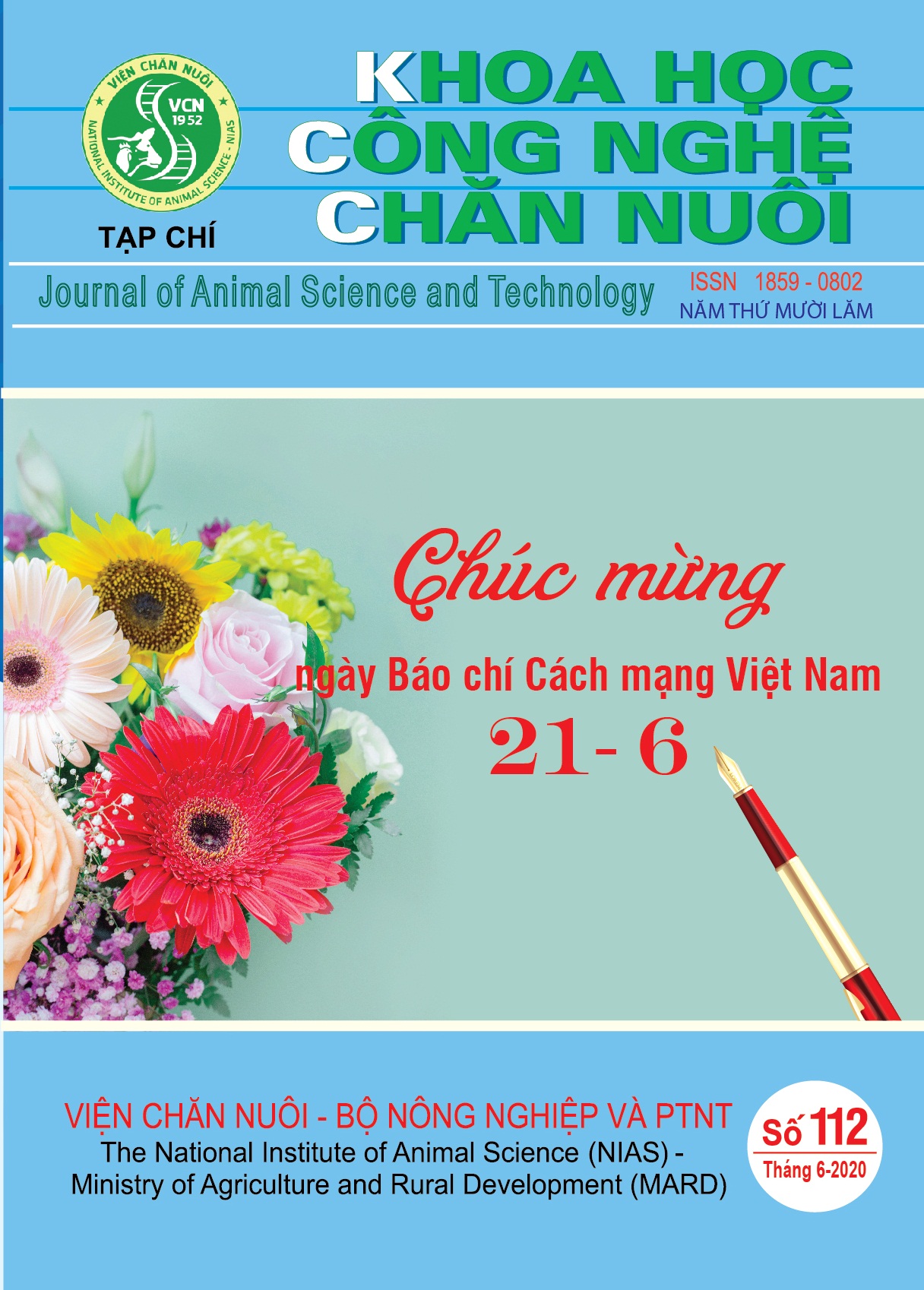Effect of coconut oil meal percentage in the concentrate to CH4 and CO2, digested nutrients and rumen parameters of lai Sind cattle
This experiment was arranged in a 4x4 Latin square design with 4 treatments and 4 Lai Sind cattle (303 ± 17.5 kg). The treatments were elephant grass, elephant grass and concentrate without coconut meal, elephant grass and concentrate with 60% coconut meal and elephant grass and concentrate with 100% coconut meal corresponding to the EG, Co0, Co60 and Co100 treatment, repectively. Each experimental period was 16 days including 9 days for addaption and 7 days for sampling. Methane and carbon dioxide emissions was automatically measured by the JIRCAS system in 3 consecutive days and live weight of cattle was also weighed at the initial and the end of each experimental period.
The results showed that dry matter (DM) and organic matter (OM) intake (kg/animal/day) in Co0 treatment (5.83 and 5.33) and Co60 treatment (5.30 and 4.85) were significantly higher (P<0.05) than EG treatment (3.76 and 3.40). CP and metabolizable energy (ME) intake of Co60 treatment was significantly higher (P<0.05) than those of the EG treatment. The digested ether extraction (kg/animal/day) gradually increased from the EG to Co100 treatments with the higher values for the Co100 (0.279) and Co60 treatments (0.254) and the lowest one for the EG treatment (0.060). Similarly daily weight gain of cattle was from 0.276 to 0.664 kg with the higher value for the Co60 treatment and the lowest one for the EG treatment. CH4 production (g/kg DWG) was significantly different (P<0.05) among the treatments and the value of the Co60 (169) was lower than that of the Co0 treament (221). There was a close linear relationship between CH4 and CO2 emissions with the function y=0.122x – 64.5 (R2=0.858 và P=0.013). In conclusion that supplementing concentrate feed to the diets increased methane and carbon dioxide production of cattle. The Co60 treatment improved nutrient intake and digestibility and gave a reduction of the emitted methane (g/kg DWG) of 23.7% compared to the Co0 treatment.

